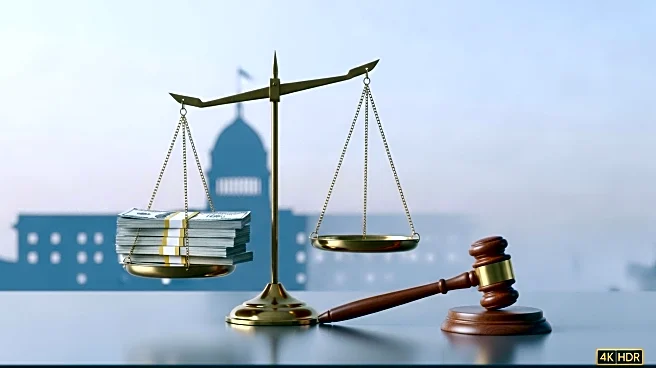What's Happening?
President Donald Trump is set to sign an executive order aimed at ending cashless bail for suspects arrested in Washington, D.C. The order is expected to threaten withholding federal funding from cities that implement cashless bail systems. Supporters of cashless bail argue that it benefits lower-income offenders who cannot afford bail, while opponents, including Trump, claim it contributes to crime. The administration's move is part of a broader federal crackdown in the nation's capital, with Trump expressing a desire to make Washington a 'beacon' of crime-free living.
Why It's Important?
The executive order targeting cashless bail reflects ongoing debates about criminal justice reform and the balance between public safety and equitable treatment of suspects. Ending cashless bail could disproportionately affect low-income individuals, potentially leading to increased pretrial incarceration rates. This policy shift may also influence other jurisdictions considering similar reforms, impacting national discussions on bail systems and criminal justice equity. The threat to withhold federal funding could pressure cities to reconsider their bail policies, affecting local governance and autonomy.
What's Next?
The signing of the executive order will likely prompt legal challenges and public debate over its implications for civil rights and justice reform. Cities with cashless bail systems may face financial and political pressure to align with federal policies. The administration's actions could lead to broader discussions on the effectiveness and fairness of bail systems, potentially influencing future legislative and judicial decisions.











